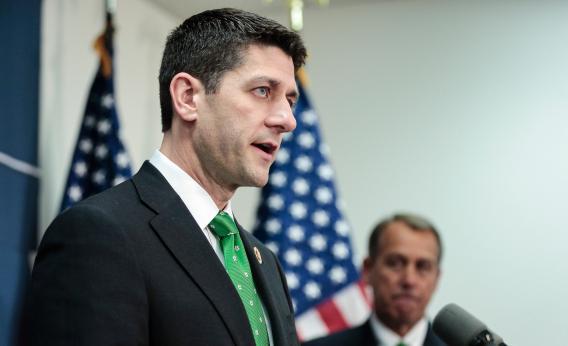The results of the unsuspensful roll call are here. As ever, it’s the “nay” voters who receive our undivided attention. Who could possibly oppose a fantasy document that assumes balanced budgets and lower tax rates without ever specifying what deductions would have to go? These people could.
The Anti-Everything Caucus: Michigan Rep. Justin Amash, Georgia Rep. Paul Broun, North Carolina Rep. Walter Jones, and Kentucky Rep. Tom Massie can be voted on to oppose almost any bill that has the word “spending” in it. Jones does so because of his objections to war funds. The others are basically economic libertarians.
The Prisoners of Broun Caucus: Georgia Rep. Phil Gingrey is still considering a run for Senate and can’t let Broun get to his right.
The Special Objection Caucus: Arkansas Rep. Rick Crawford explains that he wants to vote for “permanent spending caps,” not these stopgap budgets. Virginia Rep. Randy Forbes has been appealing for sequestration’s military spending cuts to be reversed, but this budget assumes them. Rep. Joe Heck says that unlike the budget, he “indicates [his] priority” of Nevada, which is nice and vague.
The Re-election Caucus: New York Rep. Chris Gibson and West Virginia Rep. David McKinley represent Republican-leaning seats that are, nonetheless, vulnerable from the “you’re robbing seniors blind!” charge.
